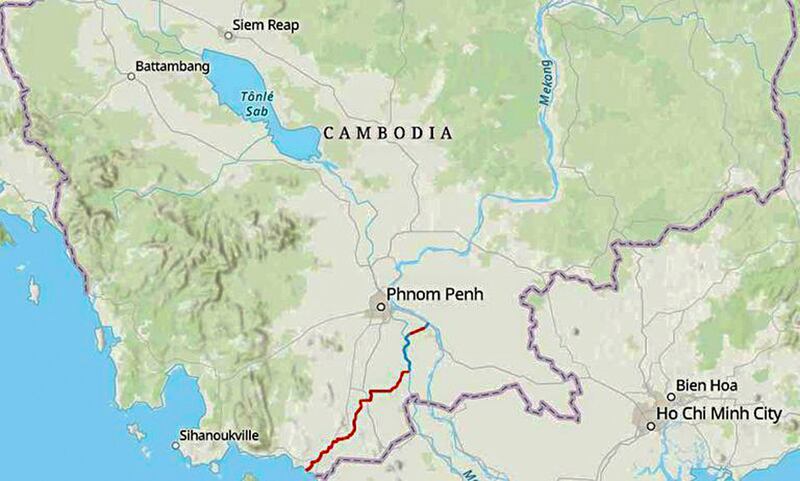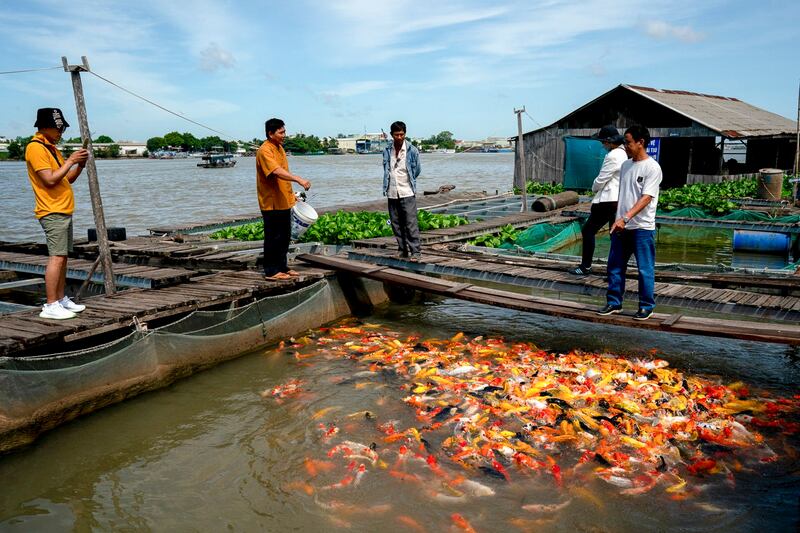The Cambodian government official overseeing a proposed US$1.7 billion canal told diplomats on Friday that the project has been studied for two years and won’t have a negative impact on the environment.
So far, only Vietnam has said that it opposes the 180 km (112 mile) Chinese-built project, said Sun Chanthol, a deputy prime minister and the former minister of public works.
“There is nothing to worry about, but they keep raising it,” he told reporters after the meeting in Phnom Penh, referring to Vietnam. “I have already explained to them. We studied it in detail. Do not worry. Do not worry.”
The Funan Techo canal, officially known as the Tonle Bassac Navigation Road and Logistics System Project, will connect the Cambodian coastal province of Kep on the Gulf of Thailand with the inland provinces of Kandal and Takeo and the capital of Phnom Penh via a tributary of the Mekong River.
The Cambodian government has said it would cut transport costs and reduce dependence on Vietnamese ports. Construction is scheduled to begin later this year and could be completed within four years.

A group of Vietnamese experts suggested last week that Hanoi should push for a delay to allow further discussions about the project’s environmental and geopolitical impacts on the Mekong delta, which is home to 17.4 million people.
The experts said the canal could "reduce the flow of the river by up to 50%" in the delta, leaving it vulnerable to sea water incursions.
Senior Vietnamese officials have also asked that the Mekong River Commission be allowed to evaluate the project. The commission works with Cambodia, Thailand and Laos and Vietnam to “manage the shared water resources and the sustainable development of the Mekong River.”
10,000 jobs
Sun Chanthol, who also serves as the first vice president of the Council for the Development of Cambodia, met with representatives from several embassies, including the United States, the United Kingdom and France.
He told reporters afterward that the project will create jobs for at least 10,000 people, most of them Cambodian.
“Only a few Chinese will be technical advisers,” he said. “China can’t spend money to send their thousands of workers here.”

Cambodia plans to allow a Chinese state-owned company, the China Road and Bridge Corporation, to build the canal under a 50-year construction, operation and transfer agreement.
The U.S. Embassy has said that while it respects “Cambodia’s sovereignty in internal governance and development decisions,” the Cambodian people as well as people in neighboring countries “would benefit from transparency on any major undertaking with potential implications for regional water and agricultural sustainability.”
Former Prime Minister Hun Sen, now the president of the Senate and still retains much power, told a business banquet last week that construction of the canal will go ahead as planned, emphasizing the project was of national interest.
Sun Chanthol is scheduled to give a public presentation on the project at the Institute of Technology of Cambodia in Phnom Penh on Saturday.
Translated by Yun Samean. Edited by Matt Reed and Malcolm Foster.
